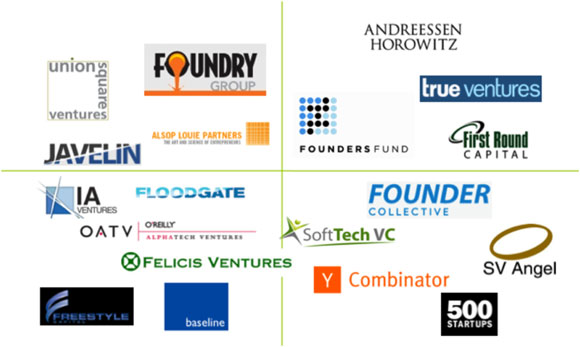A question I have been asked in my series on the brewing bubble in SuperAngel deals (and funds!) is why the traditional VCs are getting into auctions for the hot deals. Jeff Bussgang guest blogging at VentureBeat has an interesting perspective about how in the New Normal for Venture Capital, with too much money chasing too few exits, the founders have all the leverage.
He uses colorful metaphors of sheep and wolves, which I think can overshadow the dynamic. The strategy for large VC funds in the New Normal is to put all their eggs in a few promising deals that could go IPO. They often express this as “we are in the business of funding great companies, not quick flips.” There is nothing wrong with this, and indeed is the strategy of the top funds over the past 30 years – they would prefer to fund great entrepreneurs and build an Apple or Sun rather than sell out early. In order for this to work in an era of few IPOs, however, they need to be in the hot deals and get as much ownership as they can. When they collectively hop on this strategy, the deals get bid up.
The VC auctions for hot deals is spreading to other categories of startups. And no surprise, the number of SuperAngel funds and the amounts they are raising is exploding. A bubble in funds!
Here is a map of SuperAngels, in a 2×2 where the upper half are the bigger funds (over $100m). They are spread out by strategy, with the ones who have a much faster pace of investing more to the right.

The market dynamic is running decidedly in favor of SuperAngel funds. Markets abhor a vacuum. A new phenomenon is filling in for the dearth of IPOs: secondary sales.
The eye-popping mark-ups are drawing new players into later rounds, providing new exit paths for these hot startups. Much of the money in Facebook and Zynga comes in the form of “secondary sales”, buying out early investors and giving management liquidity. This trend is accelerating.
The inexorable math of the bet-big-on-hot-deals strategy is also leading traditional venture firms to do something they previously would have avoided: buying out the early investors. When a lean start-up doesn’t need as much cash as being offered, the way to put more money in play and own a higher percent is to buy out the early SuperAngel investors. Consider this example:
- VC wants to put in $10m at $40m value to own 20% post money ($10m/$50m)
- Startup only needs $5m on top of SuperAngel earlier $1m invested
- VC puts $5m into the company and $5m buying out early investors
- VC now gets $10m in play with 22% ownership (by buying out early investors, the post-money value only goes up by $5m to $45m)
- SuperAngels get 5x on their investment if they sell their whole position
The VC industry trades on IRR, the rate of return to investors in their funds. The VentureBeat article makes the math clear:
- a 5x return in 5 years is a 38% IRR
- to get 38% over 9 years, a 20x return is required
The SuperAngels can get out quickly and give high returns to their investors. The large VC funds are expecting to be in the deal a lot longer to mature it to IPO, and must shoot for 20x to provide the same sort of returns as nimble SuperAngels. Even if they do not achieve that across their whole fund, being in the few hot exits is gold for raising new funds.
Expect this dynamic and the secondary-sale trend to continue.



Leave a Reply